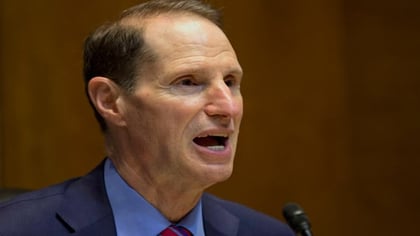Senate Finance Committee Ranking Member Ron Wyden, D-Ore., introduced legislation Tuesday to allow employers to make “matching” contributions to 401(k), 403(b) and SIMPLE retirement plans while employees continue to pay their student loans.
The Retirement Parity for Student Loans Act would enable employers to voluntary allow recent higher-education graduates to pay their student loans while receiving employer matching retirement plan contributions. Employers would attribute the student loan payments as salary reduction contributions made to the retirement plan.
A description of the bill states that the rate of matching for student loans and for salary reduction contributions must be the same.
For instance, if a 401(k) plan provides a 100% matching contribution on the first 5% of salary reduction contributions made by a worker, then a 100% matching contribution must be made for student loan repayments equal to 5% of the worker’s pay.
“Special rules apply if a worker makes both salary reduction contributions and student loan repayments,” the bill descriptor states. “Under those rules, student loan repayments are only taken into account to the extent that the worker has not made the maximum annual contribution to the retirement plan — for example, the annual maximum contribution limit per worker is generally $19,000 for 2019.”









 December 18, 2018 at 04:36 PM
December 18, 2018 at 04:36 PM











